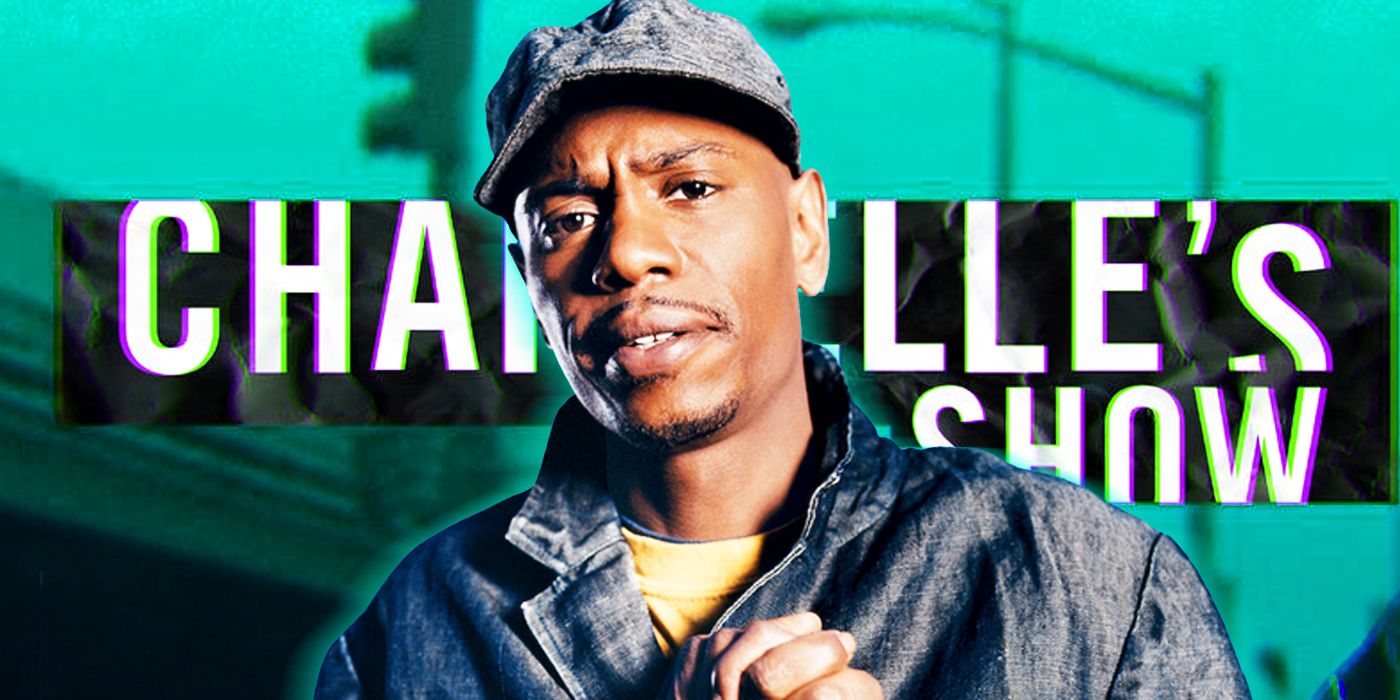In 2019, Dave Chappelle received the Mark Twain Prize for American Humor, but he'd been a hardworking comedian long before that. By the time Chappelle's Show came around in early 2003, the cult following that came with him already knew what fledgling Comedy Central viewers were about to find out. Chappelle wasn’t just funny, he was a comedic force to be reckoned with. Despite this, Chappelle's Show only ran for two seasons.
Over the span of 15 years, Chappelle has slowly divulged reasons and circumstances for leaving his landmark comedy series. The unheard-of abdication, at the top of his game, was as bewildering as it was shocking to fans and the entertainment world. But Chappelle was wrestling with himself and his craft, issues that couldn't be overpowered by money and fame.
Chappelle, with writing partner Neal Brennan, delivered a litany of iconic sketches and characters for Chappelle's Show, from a racial draft and a blind Klansman to Charlie Murphy’s memory-lane re-enactments. However, the show wasn't just for laughs. The skits were sometimes harsh, cultural realities few in the entertainment industry dared discuss.
Unexpected choices kept it fresh and relevant along with exceptional guests. With future stars like The Mandalorian’s Bill Burr or the multi-talented Mos Def, the show was a powerhouse of hilarity and creativity, making it one of the biggest things on TV. When Chappelle's Show was first released on DVD, sales were record-breaking. At the end of 2004, Viacom vacuumed up over $37 million from DVD wholesales, which wasn't bad considering the first shipments to stores were a paltry 35,000 copies. Chappelle also signed a new $50-million dollar deal during Season 2.
On the surface, Chappelle's Show seemed to be going right. However, in 2004 -- early into the production of Season 3 -- Chappelle quit the show after filming a controversial sketch. After leaving, he immediately traveled to Africa to step out of the spotlight and recalibrate himself. Back home, the rumor wheel as to why the comedian walked out on his own show began to turn. Comedy Central eventually released the three episodes it assembled for the unfinished Season 3. Without Dave’s signature monologues, the season was a painful reminder of what could have been.
Chappelle's Show offered a window into the insidiousness of racism and the destructiveness of casual stereotypes that erodes societal equality. "It was like taking somebody on a tour through a young black man's subconscious, and I don't think America has been there. So in a way it was kind of like reality TV, right," Chappelle said. However, Chappelle suddenly found himself being pushed into places he wasn’t comfortable with. With a bitter twist of irony, it was unwanted laughter, at an inappropriate time, that helped bring it to a stop.
Chappelle first spoke to Oprah in 2006 about the pressures and people around him that left him feeling "manipulated" when he quit. Chappelle later offered more details to David Letterman in 2020, saying, “It was me dressed in blackface who'd pop up anytime a person felt the pains of racism, which is a tough trick to pull off. It's not a bad sketch, but hearing the wrong laugh, while you're dressed that way, it makes you feel shame." Ultimately, the incident with the skit was like a fatal blow after an exhausting pummelling of creative struggles with those around him.
Comedy Central’s owners, Viacom, were also questioning the merits of his artistic choices and comedic style. Suddenly the man on top was being forced to justify how he got there. It was during high-level meetings with executives Chappelle regretted being forced to defend his art. Chappelle also recounted to his fellow veteran comedians feelings of exploitation that came with negotiating a huge contract that he ultimately wasn’t happy with. Added to that, excessive pressures from those around him and Chappelle was left distracted, unfulfilled and unable to continue.
Netflix recently began streaming Chappelle's Show without having to pay him based on the terms of his old deal. Chappelle then asked fans not to watch it out of a sense of fairness. Netflix noticed (and HBO Max) and both are now paying him the money he deserves in a made-for-TV ending



